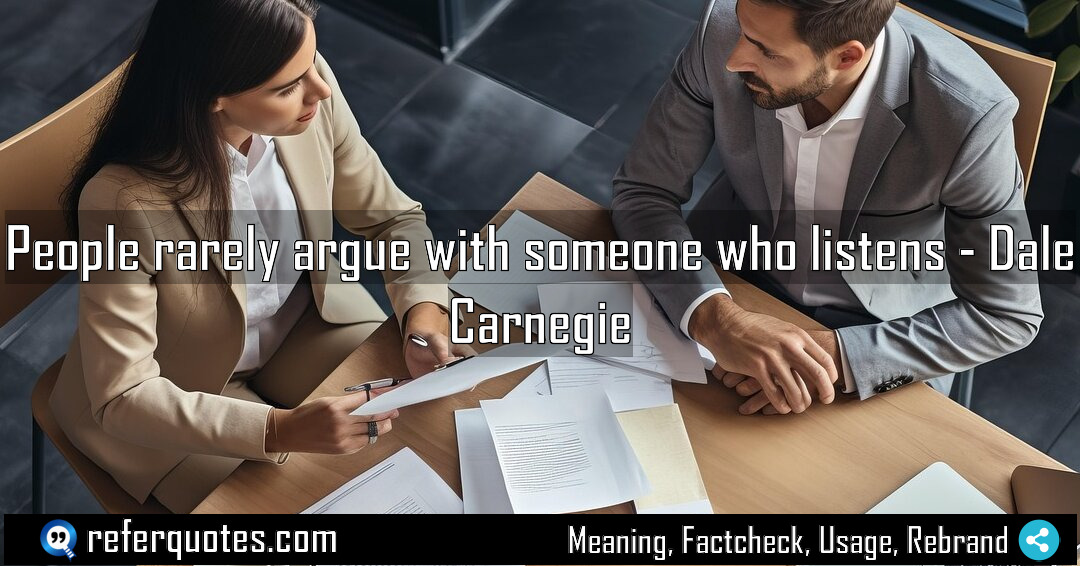You know, I’ve seen it time and again: People rarely argue with someone who listens. It’s one of those simple truths that completely changes the dynamic of any conversation. When you truly listen, you’re not just waiting for your turn to talk; you’re disarming the other person and opening the door to real understanding.
Share Image Quote:Table of Contents
Meaning
At its heart, this quote means that genuine listening is a powerful tool for de-escalation. It’s not about being passive; it’s an active strategy that makes conflict almost impossible to sustain.
Explanation
Let me break this down for you. An argument, a real heated one, requires two opposing forces. It’s a battle of egos. But when one person truly, authentically listens—I mean, really listens to understand, not just to reply—they remove their side of the force. They stop being an opponent and start being a partner. The other person’s frustration has nowhere to go. Their steam just… evaporates. It’s a psychological shift. You’re no longer a target; you’re a confidant. It’s incredibly difficult to keep yelling at someone who is calmly and sincerely trying to see things from your point of view. It’s a game-changer.
Quote Summary
| Context | Attributes |
|---|---|
| Original Language | English (3668) |
| Category | Skill (416) |
| Topics | communication (196), listening (91), peace (46) |
| Literary Style | memorable (234), short (36) |
| Emotion / Mood | calm (491), humorous (34) |
| Overall Quote Score | 85 (305) |
Origin & Factcheck
This wisdom comes straight from the playbook of Dale Carnegie Training, specifically from their 2009 book, The 5 Essential People Skills, published in the United States. It’s a modern extension of Carnegie’s timeless principles from How to Win Friends and Influence People, so you’ll sometimes see the sentiment attributed to the man himself, but this specific phrasing is from the later work by his organization.
Attribution Summary
| Context | Attributes |
|---|---|
| Author | Dale Carnegie (408) |
| Source Type | Book (4032) |
| Source/Book Name | The 5 Essential People Skills: How to Assert Yourself, Listen to Others, and Resolve Conflicts (71) |
| Origin Timeperiod | 21st Century (1892) |
| Original Language | English (3668) |
| Authenticity | Verified (4032) |
Author Bio
Dale Carnegie(1888), an American writer received worldwide recognition for his influential books on relationship, leadership, and public speaking. His books and courses focus on human relations, and self confidence as the foundation for success. Among his timeless classics, the Dale Carnegie book list includes How to Win Friends and Influence People is the most influential which inspires millions even today for professional growth.
Official Website |Facebook | X | Instagram | YouTube |
Where is this quotation located?
| Quotation | People rarely argue with someone who listens |
| Book Details | Publication Year/Date: 2008 ISBN/Unique Identifier: 9781416595489 (ISBN-13), 1416595487 (ISBN-10) Last edition. Number of pages: Common reprints ~256 pages |
| Where is it? | Chapter: The Power of Listening, Approximate page from 2009 edition |
